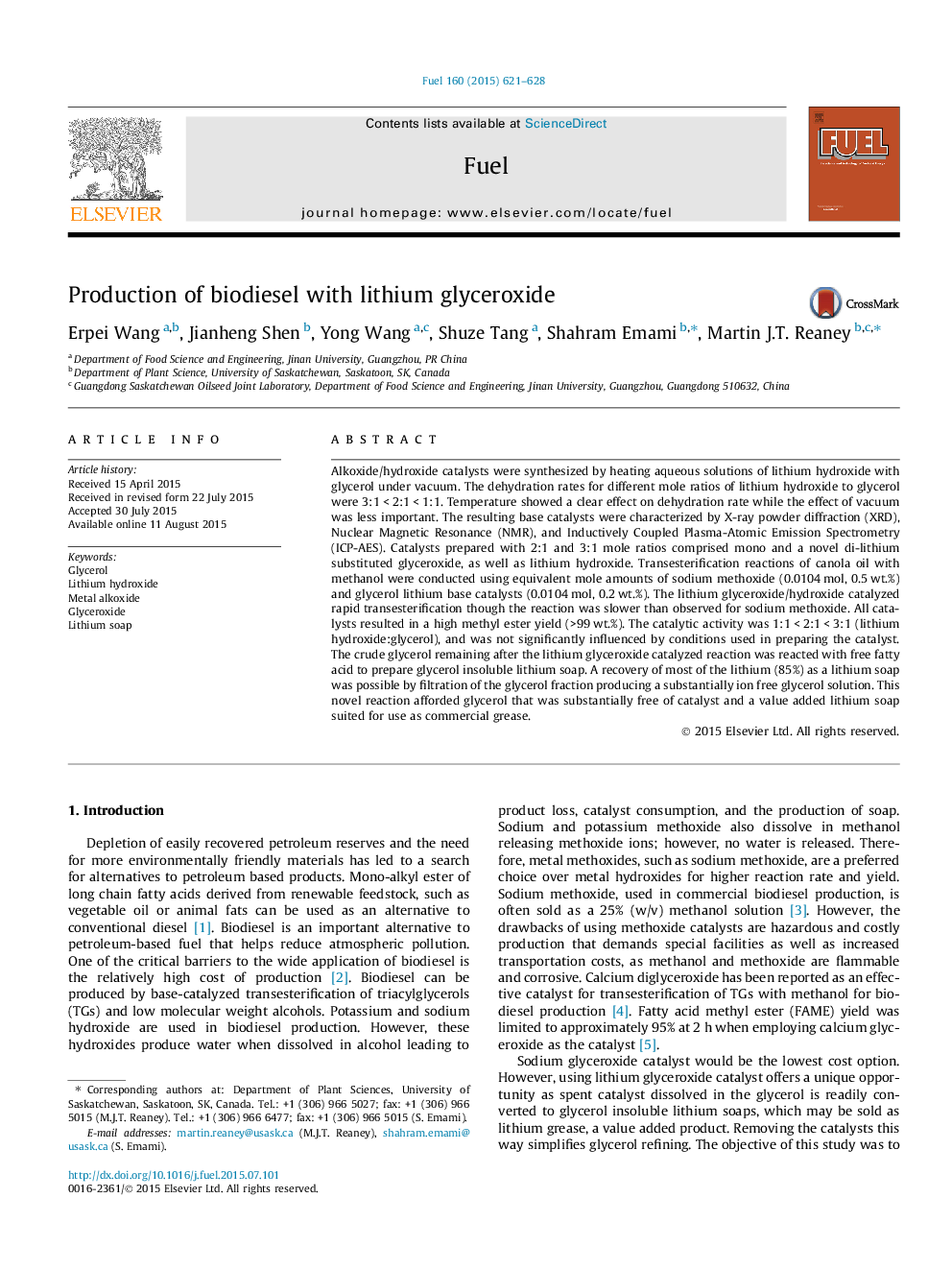| Article ID | Journal | Published Year | Pages | File Type |
|---|---|---|---|---|
| 205586 | Fuel | 2015 | 8 Pages |
Alkoxide/hydroxide catalysts were synthesized by heating aqueous solutions of lithium hydroxide with glycerol under vacuum. The dehydration rates for different mole ratios of lithium hydroxide to glycerol were 3:1 < 2:1 < 1:1. Temperature showed a clear effect on dehydration rate while the effect of vacuum was less important. The resulting base catalysts were characterized by X-ray powder diffraction (XRD), Nuclear Magnetic Resonance (NMR), and Inductively Coupled Plasma-Atomic Emission Spectrometry (ICP-AES). Catalysts prepared with 2:1 and 3:1 mole ratios comprised mono and a novel di-lithium substituted glyceroxide, as well as lithium hydroxide. Transesterification reactions of canola oil with methanol were conducted using equivalent mole amounts of sodium methoxide (0.0104 mol, 0.5 wt.%) and glycerol lithium base catalysts (0.0104 mol, 0.2 wt.%). The lithium glyceroxide/hydroxide catalyzed rapid transesterification though the reaction was slower than observed for sodium methoxide. All catalysts resulted in a high methyl ester yield (>99 wt.%). The catalytic activity was 1:1 < 2:1 < 3:1 (lithium hydroxide:glycerol), and was not significantly influenced by conditions used in preparing the catalyst. The crude glycerol remaining after the lithium glyceroxide catalyzed reaction was reacted with free fatty acid to prepare glycerol insoluble lithium soap. A recovery of most of the lithium (85%) as a lithium soap was possible by filtration of the glycerol fraction producing a substantially ion free glycerol solution. This novel reaction afforded glycerol that was substantially free of catalyst and a value added lithium soap suited for use as commercial grease.
